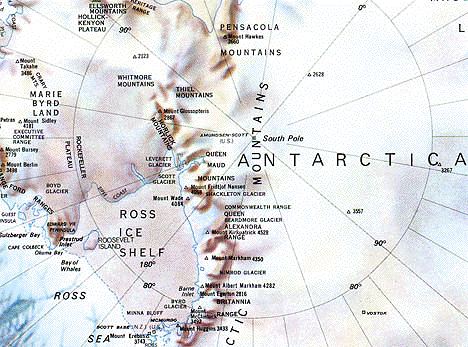"This was the warmest summer (2002) in the Antarctic Peninsula to date. The Antarctic Peninsula has one of the steepest warming trends of anywhere on earth and this event, the collapse of the Larsen B ice shelf, was the largest event of its kind in the last 30 years."
- Ted Scambos, Ph.D., Glaciologist,
Univ. of Colorado

March 21, 2002 Boulder, Colorado - Scientists have been warning since 1997 that the Antarctic Peninsula and its Larsen B ice shelf were melting, but no one expected that by March 2002 the Larsen B would have disintegrated to only 40% of the size it was five years ago. But it has and in its collapse, one of the largest floating ice masses of the past thirty years has broken off. Nearly twice the size of Rhode Island covering 2,160 square miles (3,250 square kilometers) and 750 miles thick, iceberg B-22 was photographed on March 11, 2002 by the AVHRR satellite and reported by NOAA, the National Ice Center (NIC) and the University of Colorado's National Snow and Ice Data Center. The ice shelf has existed since the last ice age 12,000 years ago, and yet it disintegrated suddenly over a 35 day period that began the end of January 2002.
Click here to subscribe and get instant access to read this report.
Click here to check your existing subscription status.
Existing members, login below:
© 1998 - 2024 by Linda Moulton Howe.
All Rights Reserved.

